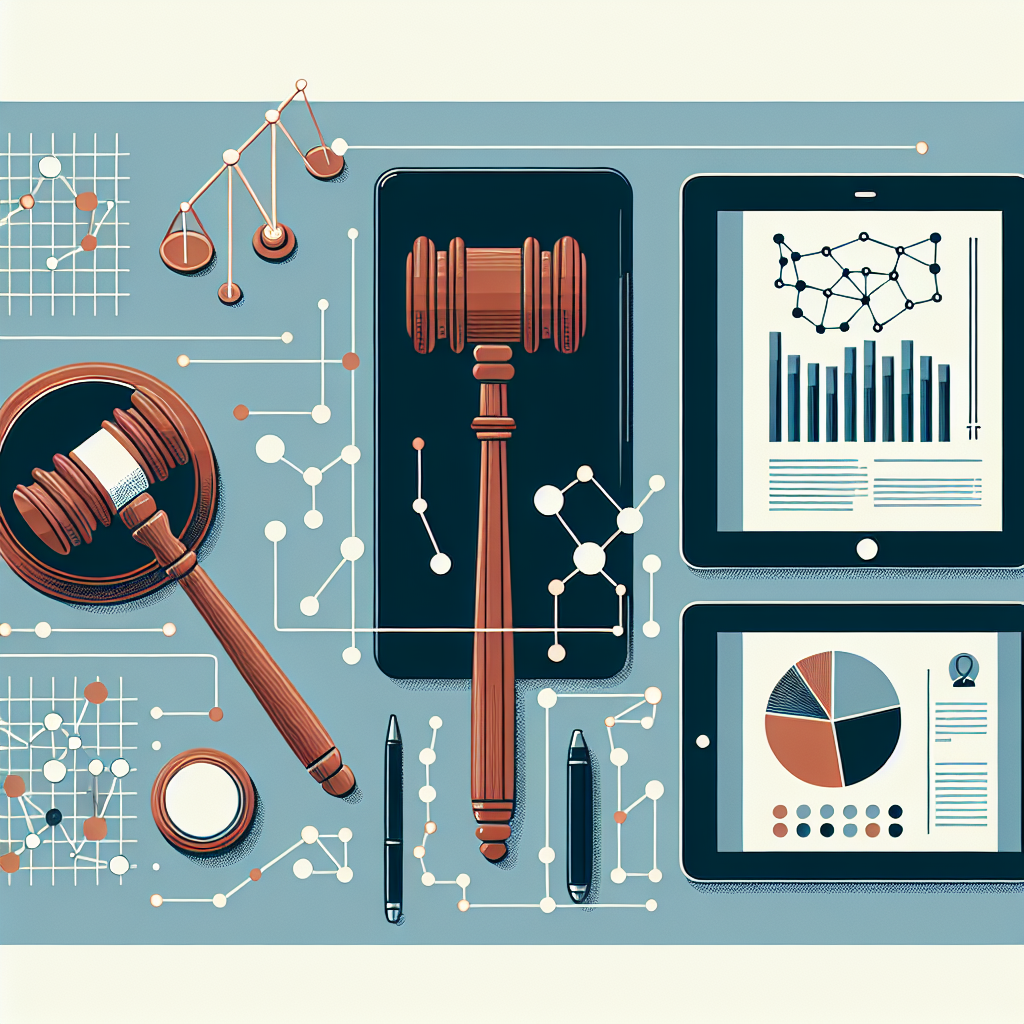Understanding Smart Contracts in Business Automation
Smart contracts are reshaping the landscape of business automation by acting as self-executing agreements embedded within blockchain networks. But what exactly are smart contracts, and how do they work? These contracts are programmed to automatically execute and enforce the terms of an agreement once specific conditions are met, reducing the need for manual oversight and thus minimizing human error.
What is a smart contract? A smart contract is a self-executing digital agreement encoded on the blockchain that automatically fulfills its terms when predetermined conditions are met.
This groundbreaking technology dramatically enhances business operations by using code to define contract terms, allowing processes to proceed autonomously and error-free. Imagine a scenario where business agreements from payrolls to supply chain transactions could be automatically verified and executed without human interference. Not only does this ensure efficiency, but it also offers unparalleled security against fraud by leveraging blockchain’s immutable nature.
Consider how traditional contracts require endless paperwork and frequent manual checks, often leading to disputes or delays. In comparison, smart contracts replace these cumbersome processes with seamless, programmatic actions. They function much like uncomplicated scripts running on your computer, geared specifically for executing financial transactions and agreements with precision.
“Smart contracts are transforming business automation by offering an unprecedented level of trust and efficiency without the need for traditional intermediaries.” – Industry Expert
The benefits of integrating smart contracts into business operations are manifold. Firstly, they significantly reduce reliance on intermediaries, thus speeding up processes and lowering costs. As operations such as supply chain management, payroll, and contract negotiation move toward automation, businesses are finding new ways to optimize efficiency and ensure compliance with fewer resources.
In regions like Africa, where the tech landscape is evolving rapidly, the application of smart contracts opens up rich opportunities for growth. The $JARA token is a prime example, illustrating how local platforms are bridging global capital with African assets. By utilizing Jara’s tokenization, they are unlocking substantial value in infrastructure, like the Lagos airport project.
Smart contracts also offer remarkable transparency and security, as their records are stored publicly on the blockchain, enhancing trust with stakeholders and clients. This empowers businesses to demonstrate their commitment to transparency—an invaluable asset in boosting investor confidence and fostering a reputation for reliability.
Finally, as more businesses recognize the potential of smart contracts, diverse industries are beginning to harness this technology, from blockchain-based financial services to innovative gaming models. The flexibility inherent in smart contracts supports the automation of complex transactions, driving innovation and setting the stage for a future where blockchain-driven agreements could become the norm.
The Key Benefits of Smart Contracts
Efficiency and Reliability
Smart contracts are quickly transforming the way businesses operate by dramatically enhancing efficiency and reliability in automation processes. But what exactly makes them so effective? Unlike traditional contracts that require intermediaries to oversee transactions, smart contracts function autonomously on blockchain technology—a decentralized ledger system that ensures security and transparency.
What is blockchain technology? Blockchain technology is a decentralized digital ledger that records transactions across many computers such that the record cannot be altered retroactively.
Smart contracts remove the need for intermediaries, reducing the chance of disputes and speeding up processes significantly. This improvement is especially beneficial for industries that rely on quick, reliable operations, such as DeFi and financial sectors. Furthermore, the immutable nature of blockchain ensures that once a smart contract is executed, its conditions cannot be altered without all parties’ consent, thereby maintaining the integrity of the agreement.
Have you ever found yourself buried under piles of paperwork just to finalize a business deal? Smart contracts are the solution to this perennial problem. They act like digital robots tirelessly working to execute your business agreements exactly as programmed, without any room for error. Imagine them as reliable partners who never miss a step, ensuring that terms are met precisely, eliminating the risk of human error.
“Smart contracts represent the next step in business automation, offering unparalleled levels of efficiency and transparency.” – Industry Expert
The leap from manual contract management to automated smart contracts yields significant cost savings. Without human mediation, the risk of error decreases, which means less money spent on legal disputes and contract enforcement. This is a particularly appealing advantage in Africa’s digital transformation, where businesses are racing to optimize operations and reduce costs.
In a rapidly evolving marketplace, businesses need solutions that offer rapid and accurate responses. Smart contracts provide the reliability required to meet these demands, ensuring that operations run smoothly, and resources are allocated efficiently. With legally binding agreements executed without a hitch, companies can focus on innovation and expansion rather than administrative burdens.
Invest in smart contracts and discover how they can revolutionize your business by streamlining processes and enhancing the accuracy of every transaction. After all, in today’s digital era, efficiency is not just an advantage—it’s a necessity. For businesses eager to stay ahead, tapping into the world of smart contracts could be a game-changer, paving the way for seamless, future-proof operations.

Applications of Smart Contracts Across Industries
Transformative Use Cases
From finance to supply chain management, smart contracts are revolutionizing sectors by automating transactions and operations. This technology empowers businesses to improve operational agility, enhance trust, and reduce administrative costs, adapting effortlessly to various industry demands.
How do smart contracts revolutionize industries? Smart contracts automate transactions, enhance efficiency, and minimize the need for intermediaries, thereby transforming traditional business processes.
Lets dive into how smart contracts are reshaping different sectors:
- Finance: In the financial sector, smart contracts streamline processes like loan disbursements and insurance claims by automating conditions-based payouts. This reduces fraud and speeds up transaction times.
- Insurance Claims: By utilizing smart contracts, insurance firms can automate the verification processes, reducing time and errors associated with human oversight.
- Supply Chain Management: Tracking the journey of products becomes seamless as each step can be coded into a smart contract. This ensures transparency and accountability throughout the supply chain cycle.
- Real Estate: Within the real estate sector, smart contracts expedite property sales and lease agreements by eliminating much of the paperwork and need for intermediaries like lawyers.
- Healthcare: In healthcare, patient data can be safely stored and shared using secure smart contract protocols, enhancing patient privacy and data integrity.
But we must consider: are there any challenges with applying smart contracts?
What challenges do smart contracts face? Coding errors, legal recognition, and interoperability issues can challenge smart contract implementation but ongoing advancements continue to mitigate these concerns.
Despite these challenges, industries across Africa see smart contracts as a vital asset. Companies like Jara are pivotal in leveraging smart contracts to drive Africa’s digital and economic transformation. For instance, Jara’s blockchain technology aids in bridging international investors to significant African projects, showcasing its role in operational excellence and economic inclusivity. By pivoting to smart contracts, businesses across different sectors can secure a robust position in the rapidly evolving marketplace.
| Industry | Use Case | Benefits |
|---|---|---|
| Finance | Automated loan disbursement | Reduces fraud, accelerates transactions |
| Supply Chain | Real-time tracking | Transparency, accountability |
| Real Estate | Expedited transactions | Eliminates need for intermediaries |
| Healthcare | Secure patient data sharing | Enhanced privacy |
As smart contracts continue to evolve, their potential applications across additional sectors such as gaming or decentralized finance suggest an even broader scope of influence. Future advancements will bolster existing frameworks and introduce innovative capabilities that further maximize efficiency and utility of smart contracts in industry applications. Embracing this technology sooner can provide businesses with not only a competitive advantage but also the opportunity to participate in the digital transformation ongoing across Africa. This shift will help bridge the gap between traditional business models and forthcoming digital trends, ensuring that businesses remain viable and competitive.
“Jara: Unlocking the Future to Africa’s Crypto Ecosystem.”
Future Prospects and Challenges of Smart Contracts
Addressing Hurdles
As we move towards a more automated business environment, smart contracts are indeed paving the way for revolutionary changes. However, they aren’t without their challenges. Coding vulnerabilities pose one of the most significant threats. A single mistake in the code can lead to catastrophic security breaches, exposing businesses to potential attacks. That’s why constant vigilance and security audits are imperative for maintaining safety.
Another major hurdle is regulatory ambiguity. Since smart contracts operate in a decentralized environment, they often exist in a legal gray area. This lack of clarity can be daunting for businesses contemplating their use. How can they ensure compliance when the laws themselves aren’t well-defined? This question continues to challenge the growth of smart contracts.
What are the regulatory challenges facing smart contracts? The lack of clear legal frameworks and regulatory recognition can impede the adoption and trust in smart contracts, creating a barrier to widespread use.
Fortunately, ongoing advancements are working to alleviate some of these dilemmas. For instance, efforts in enhancing cross-platform compatibilities are crucial. Interoperability issues prevent smart contracts from being utilized widely across different blockchain networks. However, developers are increasingly focusing on cross-chain solutions that can solve this, thereby making smart contracts more fluid and versatile.
Security improvements are also at the forefront of discussions. Integrating advanced authentication methods and employing robust AI-driven solutions can help strengthen the integrity of smart contracts. Such innovations are pivotal for overcoming existing challenges and realizing the full potential of business automation driven by smart contracts.
Moreover, companies like Jara, a leader in bridging global capital to African assets, are spearheading the use of smart contracts. Jara’s unique approach incorporates a social-first strategy that is tailor-made for the African digital landscape, reducing barriers and unlocking vast potential.
“Jara: Unlocking the Future to Africa’s Crypto Ecosystem through smart contract innovation.”
In conclusion, while smart contracts hold immense promise, overcoming current challenges requires collaboration and innovation. Businesses must stay informed and adaptive, using expert guidance to leverage smart contracts effectively while navigating the evolving regulatory landscape. By doing so, they can position themselves at the forefront of business automation and digital transformation.
For more insights into the role of smart contracts and how they’re reshaping industries, see how they improve supply chain transparency and understand the differences between smart contracts and traditional contracts. These inquiries not only enhance knowledge but also prepare businesses for a future driven by revolutionary technological innovations.
This content incorporates SEO strategies, maintains a clear HTML structure for seamless WordPress integration, and integrates contextual links while addressing the future prospects and challenges of smart contracts, considering both technical and regulatory aspects.

How do smart contracts improve security in business automation?
Smart contracts improve security in business automation by leveraging blockchain technology, which inherently offers secure, transparent, and immutable transactions. These contracts ensure data integrity and reduce the risk of unauthorized access by using cryptographic principles.
What industries benefit the most from smart contract automation?
Several industries benefit from smart contract automation, including:
- Finance: Enhances transaction efficiency and reduces fraud.
- Supply Chain: Increases transparency and traceability.
- Insurance: Automates claims and policy management.
What are the limitations of using smart contracts in business?
While smart contracts offer numerous benefits, they have limitations, such as:
- Coding Errors: Bugs in code can lead to vulnerabilities.
- Regulatory Challenges: Legal ambiguities may affect enforceability.
- Lack of Flexibility: Hardcoded terms can be difficult to amend.
Can smart contracts be used for complex legal agreements?
While smart contracts are ideal for straightforward agreements, they can be adapted for complex legal agreements with proper programming and legal oversight. Integrations with oracles and artificial intelligence may further enhance their applicability in sophisticated contexts.

Related Practice Areas
Explore additional areas where our expertise in smart contracts and automation can provide value.
Discover What Our Clients Are Saying
At the forefront of our Smart Contracts & Automation practice is a deep-seated commitment to client satisfaction. Each case is handled with utmost care, as echoed in the appreciative feedback from those we represent.

Take the Next Step in Business Automation
If you’re ready to embrace the future of business automation with smart contracts, Jara is here to guide you every step of the way. Our team of experts understands the nuances and potential of this groundbreaking technology and can help you seamlessly integrate it into your operations. Don’t let the digital revolution pass you by. Reach out to us at [email protected] or download the Jara app on Android and iPhone to get started. Let us help bridge the gap between global capital and African assets with innovative solutions.
Smart Contracts: A New Era in Business Automation
Smart contracts are transforming the way businesses automate their operations. By leveraging blockchain technology, these self-executing contracts enable secure and transparent transactions without the need for intermediaries. Let’s explore how smart contracts are revolutionizing business automation.
What Are Smart Contracts?
Smart contracts are digital contracts that automatically enforce, verify, or execute the terms of an agreement. They are built on blockchain platforms like Ethereum, providing a decentralized environment that ensures trust and security.
The Benefits of Smart Contracts in Business Automation
- Efficiency Improvement: Smart contracts automate repetitive tasks, reducing manual intervention and increasing efficiency.
- Cost-Effective: By eliminating the need for intermediaries, businesses can save on transaction fees and operational costs.
- Transparency and Security: Blockchain’s immutable nature ensures that all transactions are transparent and secure, reducing the risk of fraud.
Applications of Smart Contracts
From finance to supply chain management, smart contracts are finding their applications across various industries:
- Financial Services: Automating payment processes, managing insurance claims, and overseeing loan agreements.
- Supply Chain: Enhancing transparency and traceability in the supply chain, ensuring authenticity of products.
- Real Estate: Streamlining property transactions and rental agreements, making the process faster and more secure.
By 2025, it is projected that smart contracts will manage over $300 billion worth of transactions globally.
Challenges and Considerations
Despite their benefits, smart contracts face certain challenges:
- Legal Ambiguities: Defining legal boundaries and recognizing smart contracts in traditional legal frameworks continues to be a challenge.
- Technical Limitations: Code errors or bugs can lead to vulnerabilities and exploitation.
- Adoption Hurdles: Transitioning existing systems to blockchain-based operations requires time and investment.
Future of Smart Contracts
The future looks promising as continuous advancements in blockchain technology enhance the functionality and usability of smart contracts. As businesses increasingly recognize these benefits, the adoption rate is likely to accelerate.
“Smart contracts are not just a trend; they are the future backbone of automated business processes.” – Industry Expert

















